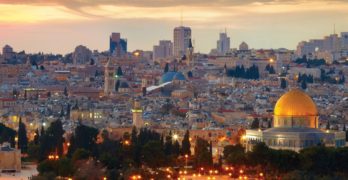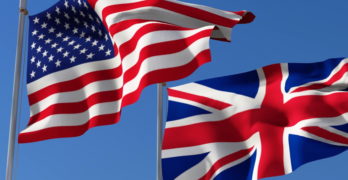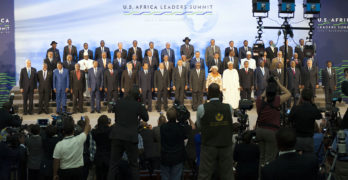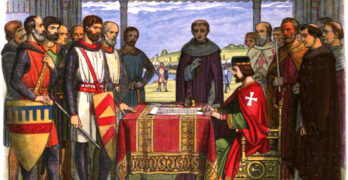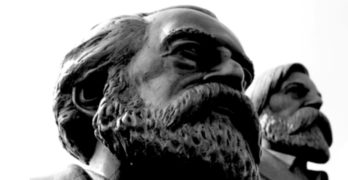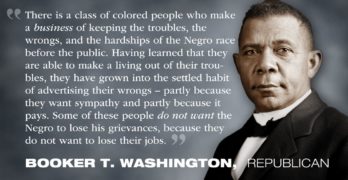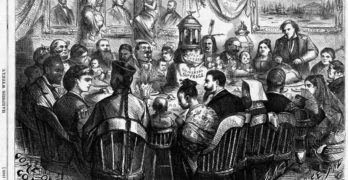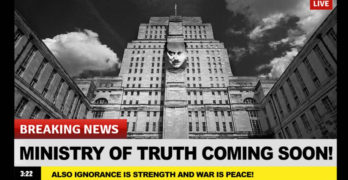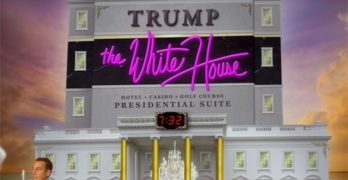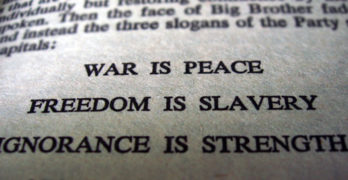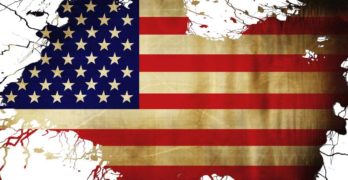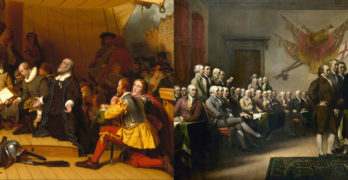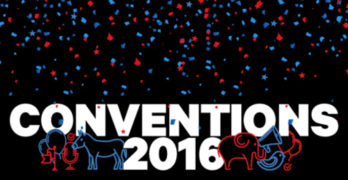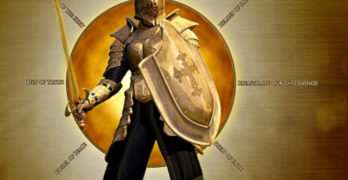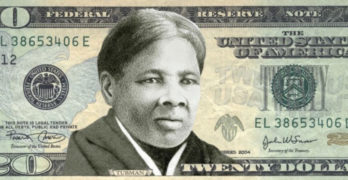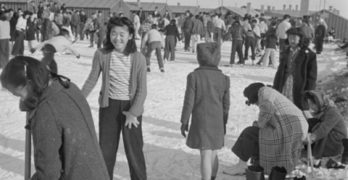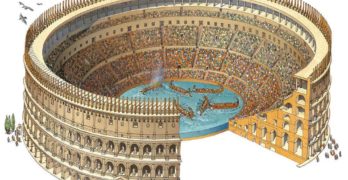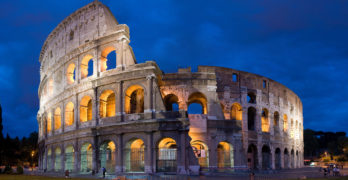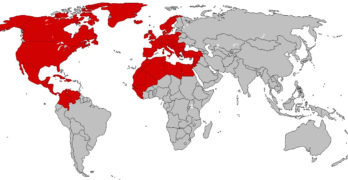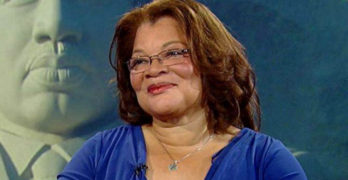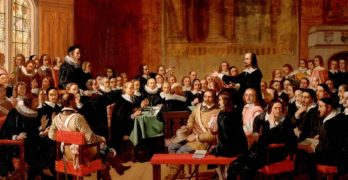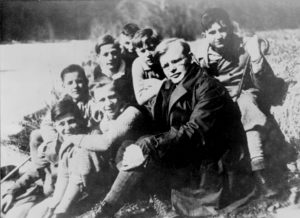
Palace of Westminster; Supplied by The Public Catalogue Foundation
Assertion of Liberty of Conscience by the Independents of the Westminster Assembly of Divines 1644
The question of Church and State has been a debated issue for many ages. We still suffer from Constantine’s decision of combining church and state, and his legacy still remains in European nations and now in America. Throughout history, the union of Church and state has led to corruption and death.
Whether in Europe, Africa or America, tension has always existed between churches and state. That is why most people are confused when it comes to church/state relations. The Church and state are separate jurisdictions, but religion is not. The Bible defines their limits of jurisdictions because the Word of God is the supreme and ultimate authority in both Church and State. Both kings and priests are commanded to follow the same standard of law and government, even though not all laws apply to each in the same way.
From the beginning, Church and state were separate. When the Pharisees tried to entrap Jesus by asking Him whether it was lawful to give tax money to the Caesar, Jesus asked them to show Him a Roman coin. “Whose image and inscription is this? They said to Him, “Caesar’s.” And He said to them, “Render therefore to Caesar the things that are Caesar’s, and to God the things that are God’s.” (Matthew 22:20-21).
Does this mean Christians are not to be involved with State affairs? In this passage we are render our due to the government and our due to God. Our citizenship in the Kingdom of Heaven requires that we pledge our allegiance to God as our ultimate obedience and commitment. In other words we have responsibilities in both areas. When Jesus says, we are to render our due to God, and render our due to the government, He is clearly saying not to avoid the state. That is why in Romans 13:4-6, Paul says on three separate occasions that “those those who are civil government are God’s servants and he calls the leaders of both church and state “ministers.”
For example the Jewish Church was not the State, nor was the state the Church. Each had its distinct rulers, courts, laws, subjects, penalties and duration. Moses, Joshua, David, Solomon, Hezekiah, and Zerubbabel represented the State; Aaron, Eleazar, Abiather, Zadok, Azariah, and Joshua represented the Church. Formerly it was not considered improper that the three basic functions of government those of making the law, enforcing the law, and interpreting the law in the settlement of controversies should be exercised by one supreme authority.
Accordingly, it should noted that Moses not only made known or proclaimed the law, but he was also leader king, and as well as judge. Church and State are each of them supreme in their own sphere, the Church in things spiritual, and the State in things that are temporal. They are to execute judgment as God’s delegated representatives or servants. Therefore as far as the Bible is concerned, Church and State are separate. We might apply Old Testament principles, but we must remember that the two institutions are not directly comparable. The Church gives effect to her spiritual laws, and the State to its civil laws.
It is the main reason why so many of the American Pilgrims were ministers. They believed and obeyed the Holy Scriptures but did not endorse rebellion against the British government. They knew that the Word of God doesn’t give Christians the liberty to disobey earthly governments, unless of course they contradict the Word of God.
The Pilgrims had endeavored to establish the right worship of God and the discipline of Christ in the Church according to the simplicity of the gospel and without mixture of men’s inventions, and to be ruled by the laws of God’s Word dispensed by such officers, as Pastors, Teachers, Elders, etc according to the Scriptures. Whereas the Founders wanted the nation to have freedom of religion, not from religion.
In the American colonies, church and state were closely related, but the founders of the federal and most of the state governments were careful to distinguish exactly the business of civil government from that of religion, and to settle the just bounds that lie between the one and the other. Any religion other than God’s law degrades government because only God’s perfect law provides for a perfect government. As explained by William Penn and quoted by David Barton:
Governments rather depend upon men than men upon governments. . . . Let men be good and the government cannot be bad. . . . Though good laws do well, good men do better; for good laws may want [lack] good men . . . but good men will never lack good laws nor suffer [allow bad] ill ones.”God had ordained government in lieu of anarchy – He opposed anarchy, rebellion, lawlessness, and wickedness and wanted civil government in society. Therefore, a crucial determination in the colonists’ Biblical exegesis was whether opposition to authority was simply to resist the general institution of government (an institution ordained by God Himself), or whether it was instead to resist tyrannical leaders who had themselves rebelled against God.
Philip Schaff, a German-American theologian and church historian, gave the distinctive character of American Christianity in its organized social aspect and its relation to the national life, as compared with the Christianity of Europe. He wrote that although the American history has its roots in Europe, the American relationship of church and state differed from all previous relationships in Europe and the colonial period of its history.
The relationship of church and state in the United States secures full liberty of religious thought, speech, and action, within the limits of the public peace and order. This, according to Philip Schaff, made persecution impossible. In the Protestant states of Europe, the civil government protects and supports the church, but at the expense of her dignity and independence, and deprives her of the power of self-government.
In America the state had no right whatsoever to interfere with the affairs of the church, her doctrine, discipline, worship, and the appointment of ministers. It would be a great calamity if religion were to become a subject to our ever-changing politics. But unfortunately all that has changed.
Christians find themselves under governments that are becoming more hostile to Biblical law in matters of marriage and other moral issues. This is now happening on a very escalating pace in the West—Christianity has to be eradicated from every area of public responsibility and authority. The issue of separation of Christianity and state has led inevitably to the secularization of every sphere of life and centralization of power in the national government.
So what should we do as Christians? The government merely reflects what the people believe in their hearts; it does nothing to form those beliefs. True freedom and liberty comes from the gospel of Jesus Christ. There can be no freedom without Christ. Once you take Christ and the Bible out of any institution of government, you thereby lose your freedom. As the church goes, so goes the nation.
We should note that the spiritual condition of the church determines the economic, political, and social condition of that nation which that church exists. So long as the church of God in America and the West is from backslidden to apostate, I don’t think there are any workable answers to the road to serfdom that we are on today. Philip Schaff also wrote:
Republican institutions in the hands of a virtuous and God-fearing nation are the very best in the world, but in the hands of a corrupt and irreligious people they are the very worst and most effective weapons of destruction. An indignant people may rise in rebellion against a cruel tyrant; but who will rise against the tyranny of the people in possession of the ballot-box and the whole machinery of government?
Elections are coming up but we can’t we find leaders that are just, righteous, and God-fearing in our generation. Every election cycle, the church votes for men who are morally unworthy. This invites God to make those men, if elected, to be agents of His judgment against the people who voted them into office.
God only promises to bless a government whose leaders are just, ruling righteously and in the fear of God. Christians who respect God’s principles should not vote for any man or woman who is not just and God-fearing, no matter what party that leader belongs to after all almost all of them are puppets of big corporations. Politicians criticize each other, but they both play for the same team; the losers are always the people who vote for them
Therefore, without faith, repentance, and a return to God in submission to His Laws in people and politicians, neither appealing politicians nor voting by the people have any substance. Here are the ten commitments given by Dr. Micheal Brown in response to a godless counterculture revolution.
- I will spend quality time with God every day in prayer and the Word.
- I will walk in purity of heart and integrity of life, in thought, in speech, and in deed.
- I will not be ashamed of Jesus but will confess him boldly as Lord and Savior.
- I will commit myself to the Great Commission, looking for opportunities to win the lost, restore the backslidden, and make disciples.
- I will seek to be a peacemaker and ambassador of reconciliation, forgiving those who have offended me and seeking the forgiveness of those whom I have offended.
- I will walk in love towards those who despise and reject me, overcoming evil with good and hostility with kindness.
- I will pursue fellowship with brothers and sisters of like mind and will not separate myself from the Body.
- I will be involved with a ministry of mercy, through serving or through giving, helping to relieve human suffering in a tangible way.
- I will stand for righteousness and justice in my city, speaking the truth in love regardless of cost or consequence.
- I will seek the fullness of the Spirit, availing myself of everything God has made available for His people today.


